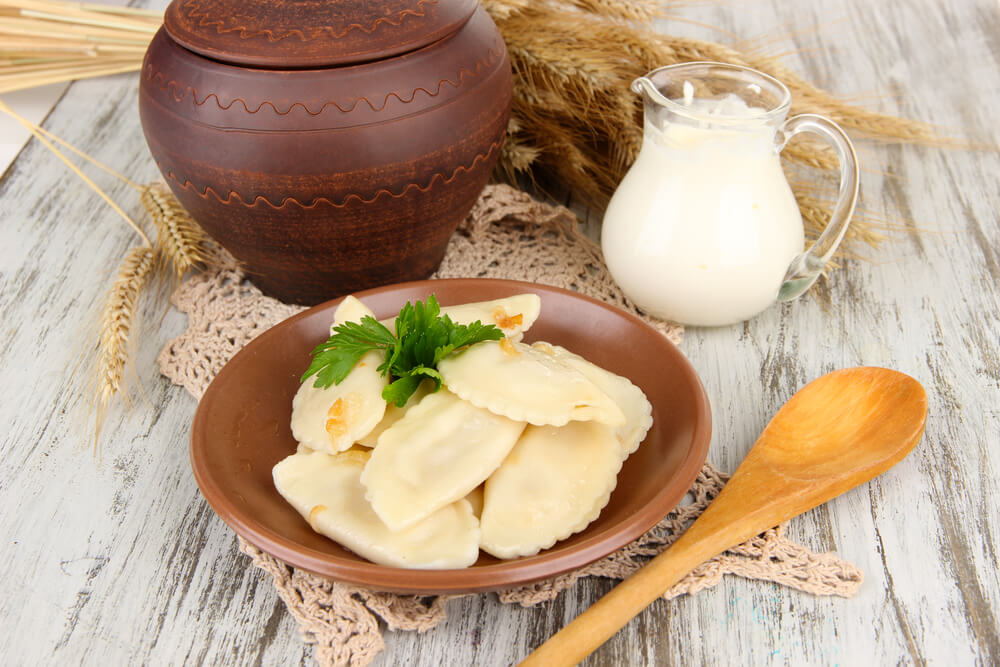“Foods, like countries, can be similar and intertwined, but still remain distinct. ‘Neighbours always enrich each other culturally,’ Ukraine’s heroic president, Volodymyr Zelensky, observed on the eve of war. ‘But that does not make them a single whole.’ Vareniki are vareniki, and not pelmeni, just as Ukraine is Ukraine, and always will be.”
The quote is from an article in The Economist, “Ukraine has a glorious cuisine that is all its own,” which is a short and informative overview of Ukrainian food.
And what are vareniki?
Tortellini, spring rolls, Cornish pasties, empanadas: nearly every cuisine in the world has a recipe in which meat or vegetables are wrapped in dough to be cooked. Ukraine’s version is vareniki.
They’re dumplings, and you can learn more at Ukrainian Recipes: “10 astonishing facts about Ukrainian varenyky.”
Here is number five:
In Ukraine varenyky are not just a national dish, but also a special talisman. Ukrainian ancestors equated varenyk with a young moon since they have a similar form. They used dumplings as sacrificial food. For instance, varenyky with cheese were sacrificed near the source of spring water.
The German writer Thomas Mann observed that “war is only a cowardly escape from the problems of peace,” and there is nothing about Russia’s ongoing attack on Ukraine (or any other acts of brutality on this planet) to contradict Mann’s position.
But I’m just a singer in a rock and roll band, and as with any other individual, unable to deploy a magic wand or summon a genie to make it all go away.
All we are saying is give vareniki and (Ukrainian) vodka a chance.
Edibles & Potables: Globalism makes boycotting vodka quite difficult
Photo credit: Ukrainian Recipes.






















